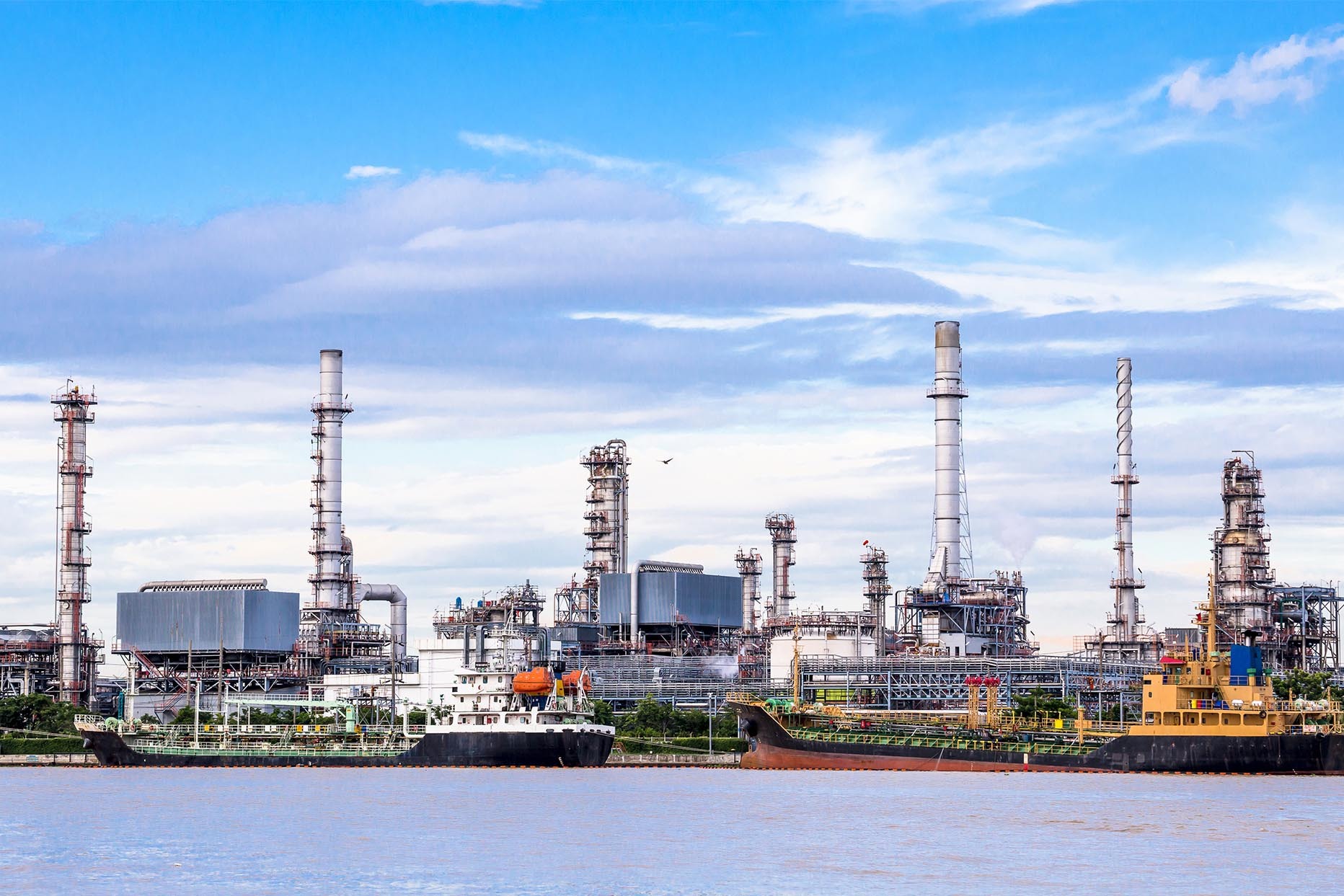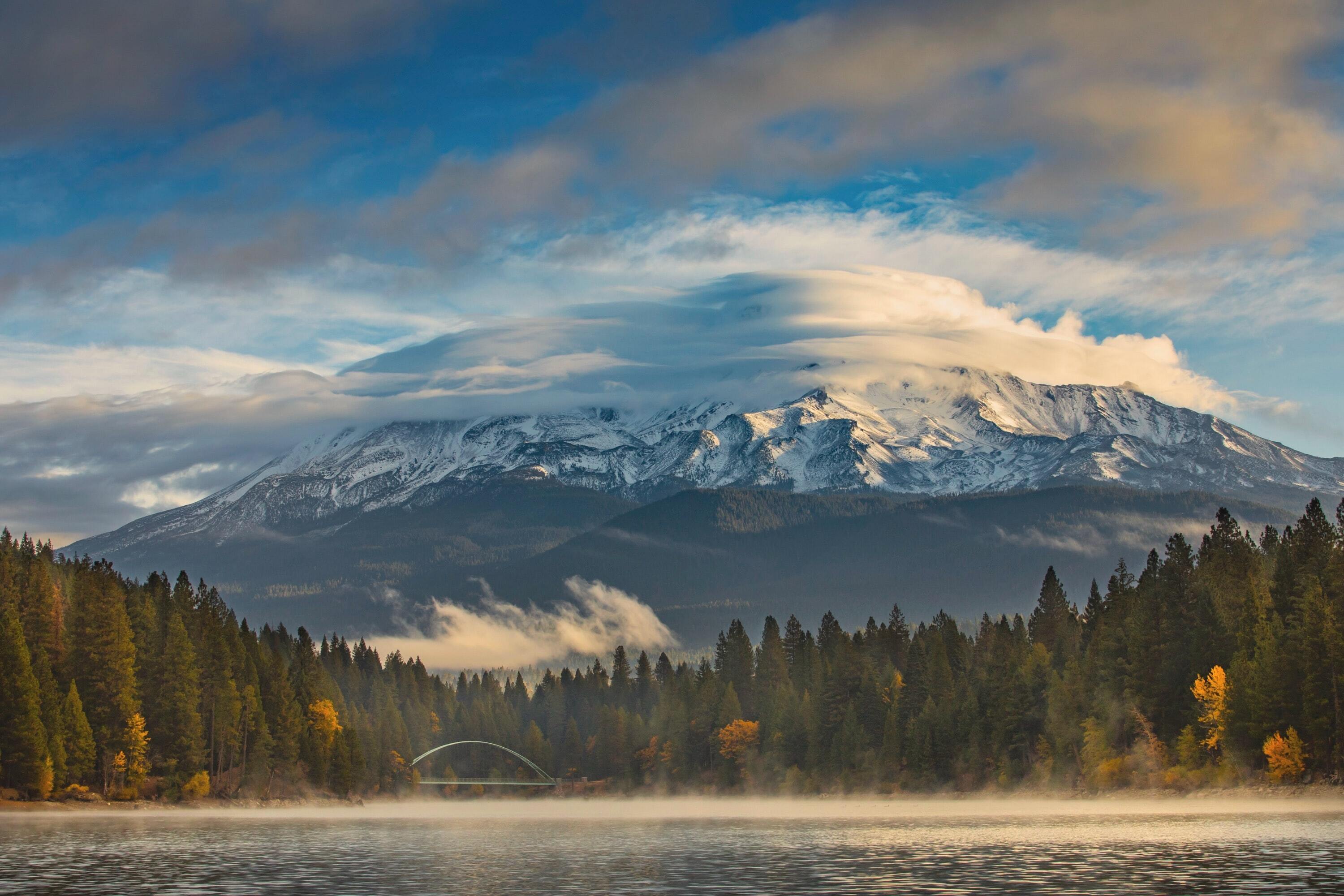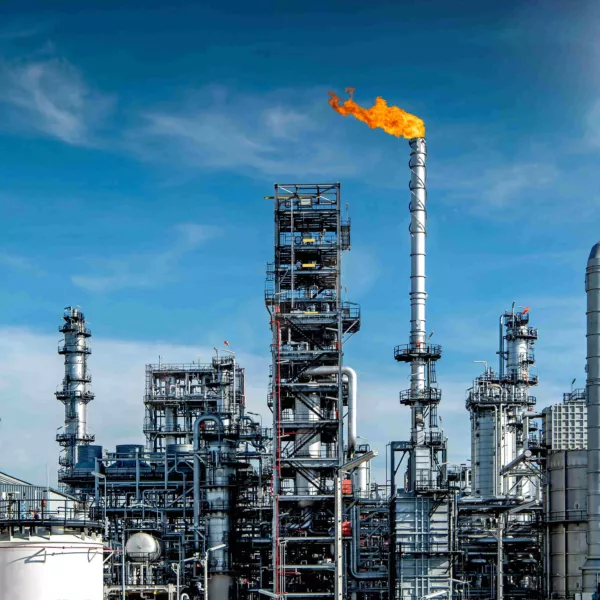Removing VOCs from air emissions in the chemical industry
Successful businesses must be capable of adapting, both to accommodate changing production levels and processes, and to comply with new regulations. DESOTEC engineers are always ready to redesign and upgrade existing set-ups to achieve optimal and cost-effective results for our clients.
The Problem
At its plant in Germany, a multinational company develops chemicals and additives for clients in sectors as varied as feed and food, pharmaceuticals, and cosmetics.
It handles a range of chemicals depending on the order, including many hazardous volatile organic compounds (VOCs). Concentrations tend to be quite high, with peaks up to 1 - 5 g/m³. Flow rates on the other hand are fairly low, from around 50 - 2 000 m³/h, depending on which production line is in use
Technologies such as biofilters or Regenerative Thermal Oxidisers (RTOs) cannot handle such fluctuations. In any case, such installations are much larger than activated carbon filters, and this plant has limited space.
The company installed DESOTEC filters several years ago, but had not kept up a monitoring and exchange schedule. Furthermore, production had increased and changed, but the filter configuration had remained the same.
In spring 2020, DESOTEC’s German sales manager got in contact to suggest re-examining the set-up to ensure it still met the company’s needs. The client readily agreed, as it was keen to strengthen its environmental commitments and lower VOC emissions at the plant.
Furthermore, the company expects its permitted emissions limit to be reduced from 50 mg/m³ to 25 mg/m³ when Germany’s air pollution control regulations, known as ‘TA Luft’, are revised in late 2021.


The Solution
DESOTEC’s sales manager held thorough and open discussions with the client. The initial filter configuration had been based on rough estimates, but this time around the client supplied up-to-date measurements of flow rates and concentrations.
This enabled us to design a new set-up for the site, which has four main production buildings.
There were two types of filter already on site. We replaced the AIRCON 2000C filters with the AIRCON 2000 models to treat the increased flowrates, and will shortly replace the AIRCON 3000 model that serves the main production hall with an AIRCON HC-XL unit. This large unit contains more carbon and is especially suite to remove the high concentrations to below the emission limit of 25 mg/m³.
The client was also using several different carbon types, including an impregnated type to remove sulphurous components. However, their recent measurements proved that only traces were present. Furthermore, practically all carbon filters were saturated. DESOTEC has now replaced the different carbon types with our standard type, which can handle the biggest range of molecules, including traces of sulphur.
The Results
So far, the filters are working perfectly, and no emissions are detectable.
The company has committed to a schedule of filter exchanges, and is carrying out regular emissions monitoring. It is confident it will be able to comply with the new TA Luft regulations.
We have been able to repair the old filter units and modified them to our current standards. These are now as good as new and have returned to our fleet.
As this case proves, It is always important to have transparent communication and accurate data so that our engineers can design an optimal system.
Companies must also re-examine their business from time to time to see if their requirements have changed. As DESOTEC’s filters are supplied on a rental basis, it is simple to upgrade them.
Activated carbon is the most flexible air pollution treatment available, capable of handling continuous and discontinuous production, and variable flow rates, concentrations and components. This makes it cost-effective in the long run.
Exchanging filters is quick and easy. DESOTEC handles all spent carbon, transporting the waste safely away from the customer’s site in closed filter units. It is treated at our state-of-the-art facilities in Belgium, where all components that were adsorbed onto the carbon are completely destroyed. The carbon is then reactivated for reuse, closing the loop and boosting sustainability. Only harmless water vapour is seen exiting the chimney.
Find your solution today
To find out how DESOTEC solutions could work for your company, call our team of engineers today to discuss.
Contact us now!Find your solution today
To find out how DESOTEC solutions could work for your company, call our team of engineers today to discuss.
Contact us now!-
Air & gas purification
Our sustainable filtration solutions ensure air purification, odour control, and high quality process gases such as biogas and biomethane. -
Chemical industry
Circular solutions to purify chemicals, air emissions and wastewater, protecting occupational health, the environment, and your business. -
Your sustainability journey
We care about protecting our air, water and soil for future generations, just like you. Our filtration solutions help you meet environmental standards, reducing your carbon footprint.


